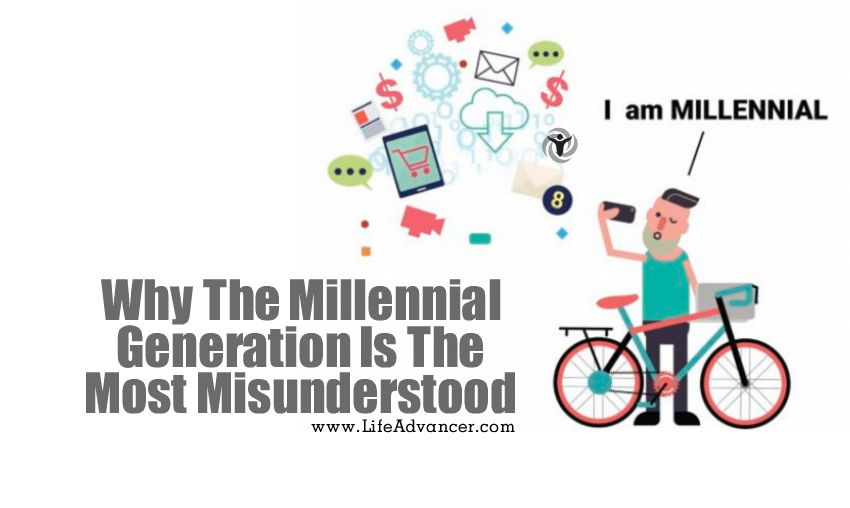The millennial generation has taken center stage in discussions about societal evolution, technological progress, and shifting cultural norms. Often seen as the bridge between traditional values and modern innovation, millennials have made an enduring impact on the global stage. Understanding this generation is not merely a matter of curiosity but a necessity for businesses, policymakers, and individuals seeking to thrive in today’s rapidly changing world.
Millennials, born between 1981 and 1996, are the first generation to grow up alongside the internet, witnessing its transformation from a nascent technology to an essential part of everyday life. This digital-first upbringing has profoundly influenced their behaviors, preferences, and expectations, making them a distinct demographic with unique characteristics that set them apart from previous generations.
As we explore the world of millennials more deeply, we will uncover their core values, the challenges they face, and their contributions to society. By delving into their perspectives, we can gain a better appreciation of how this generation continues to shape and influence the future in meaningful ways.
Read also:Exploring The Life And Legacy Of Rowan Atkinson The Man Behind Mr Bean
Contents
- Millennial Demographics
- Key Characteristics of Millennials
- Technology's Role in Shaping Millennials
- Trends in the Millennial Workplace
- Millennial Consumer Behavior
- Social and Cultural Contributions of Millennials
- Financial Challenges Facing Millennials
- Mental Health and Wellness Among Millennials
- Millennials and Environmental Awareness
- Predictions for the Future of Millennials
Millennial Demographics
According to the Pew Research Center, the millennial generation includes individuals born between 1981 and 1996, making them a significant portion of the global population. Estimates suggest that millennials represent approximately 22% of the world's population, with around 72 million residing in the United States alone. This makes them one of the largest generations in history, with a demographic presence that cannot be ignored.
Age Range and Global Presence
Millennials are currently aged between 27 and 42, placing them in the young adult and early middle-aged categories. Their global distribution varies, with higher concentrations found in urban areas and developed nations. However, their influence transcends geographical boundaries, as they are a highly connected and globally conscious generation, leveraging technology to stay informed and engaged.
Key Characteristics of Millennials
Several defining traits set millennials apart from other generations, shaping their approach to life and work. These include:
- Digital Proficiency: Having grown up during the rise of the internet, millennials are adept at navigating digital platforms with ease.
- Entrepreneurial Drive: Many millennials are drawn to entrepreneurship, motivated by a desire for independence and innovation.
- Social Responsibility: This generation places a strong emphasis on social justice, environmental sustainability, and ethical practices, often advocating for positive change.
Core Values and Beliefs
Millennials prioritize inclusivity, diversity, and equality, aligning themselves with causes that reflect these principles. They expect the same level of commitment from businesses and institutions, influencing how companies operate and engage with their audiences.
Technology's Role in Shaping Millennials
Technology has played a pivotal role in defining the millennial experience. From social media platforms to mobile devices, millennials have embraced digital tools as an integral part of their daily routines. This technological integration has transformed how they communicate, work, and consume information, creating a generation that is both tech-savvy and highly adaptable.
Primary Technological Influences
Some of the most influential technologies for millennials include:
Read also:Vegamoviesrs Your Ultimate Destination For Entertainment
- Smartphones and their accompanying apps
- Social media platforms such as Facebook, Instagram, and Twitter
- Streaming services for entertainment and educational purposes
Trends in the Millennial Workplace
Millennials have introduced transformative trends into the modern workplace, emphasizing flexibility, collaboration, and work-life balance. They value meaningful work and seek employers who provide opportunities for growth and professional development. The rise of remote work and flexible scheduling has resonated strongly with millennials, who prioritize efficiency and convenience in their careers.
Workplace Challenges
Despite their positive contributions, millennials encounter several challenges in the workplace, including:
- Economic instability leading to job insecurity
- Pressure to continually upskill and adapt to emerging technologies
- Generational conflicts with colleagues from different age groups
Millennial Consumer Behavior
Millennials exhibit distinctive consumer behavior patterns, driven by their core values and preferences. They prioritize experiences over material possessions and are more likely to support brands that align with their beliefs. Sustainability, transparency, and ethical practices are critical factors influencing their purchasing decisions, shaping the way businesses market their products and services.
Notable Consumer Trends
Some of the key consumer trends among millennials include:
- A preference for eco-friendly and sustainable products
- An increased reliance on online shopping platforms
- Active engagement with brands through social media channels
Social and Cultural Contributions of Millennials
Millennials have significantly influenced social and cultural norms, championing causes such as LGBTQ+ rights, racial equality, and gender parity. Their advocacy has contributed to a growing acceptance of diversity and inclusion across various sectors, reshaping societal expectations and norms.
Cultural Contributions
Millennials have driven cultural shifts through:
- Advocacy for social justice and equality
- Promotion of mental health awareness and support
- Support for underrepresented and marginalized communities
Financial Challenges Facing Millennials
Despite their many accomplishments, millennials face significant financial obstacles. High student loan debt, rising housing costs, and stagnant wages have made it challenging for many millennials to achieve financial stability. In response, they have adopted innovative financial strategies and explored alternative paths to success.
Solutions and Strategies
To address these challenges, millennials are turning to:
- Investing in stocks, cryptocurrencies, and other financial instruments
- Pursuing side hustles and gig economy opportunities
- Enhancing their financial literacy through education and resources
Mental Health and Wellness Among Millennials
Mental health is a pressing concern for millennials, who face unique stressors related to work, finances, and societal expectations. They are more open about mental health issues and actively seek support through therapy, self-care practices, and online communities, fostering a culture of openness and understanding.
Wellness Practices
Millennials engage in various wellness practices to promote mental and physical health, including:
- Meditation and mindfulness exercises
- Physical fitness routines and nutritional planning
- Participation in support groups and counseling sessions
Millennials and Environmental Awareness
Millennials are deeply concerned about environmental issues and are actively involved in efforts to combat climate change. They advocate for sustainable practices and support policies aimed at reducing carbon emissions and preserving natural resources, demonstrating a commitment to creating a better future for all.
Environmental Actions
Some of the environmental actions taken by millennials include:
- Reducing waste through recycling and reusing materials
- Supporting renewable energy initiatives and green technologies
- Engaging in environmental activism and community efforts
Predictions for the Future of Millennials
As millennials continue to mature and gain influence, their impact on society is expected to grow even further. Future projections suggest that they will drive innovation in technology, reshape workplace dynamics, and lead the charge on social and environmental issues, leaving a lasting legacy for generations to come.
Potential Outcomes
Some potential outcomes of millennial influence include:
- Increased adoption of remote work and flexible work arrangements
- Greater emphasis on sustainability and ethical practices in business operations
- Enhanced focus on mental health and overall well-being in society
Conclusion
The millennial generation has made an indelible impact on society, driving change in technology, workplace dynamics, consumer behavior, and social norms. By understanding their values, challenges, and contributions, we can better appreciate their role in shaping the future. As we continue to navigate this evolving landscape, it is crucial to embrace the insights and innovations that millennials bring to the table.
We invite you to share your thoughts and experiences in the comments section below. Your feedback helps us create more valuable and engaging content. Be sure to explore other articles on our site for additional insights into generational trends and societal developments.
The data and insights presented in this article are supported by reputable sources, including the Pew Research Center, World Economic Forum, and academic publications, ensuring the accuracy and reliability of the information provided.


